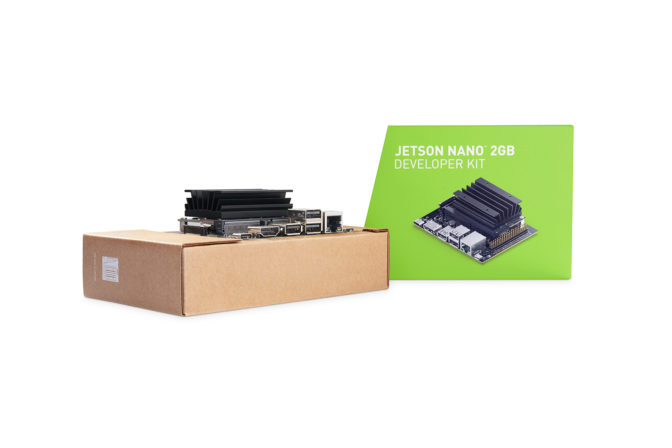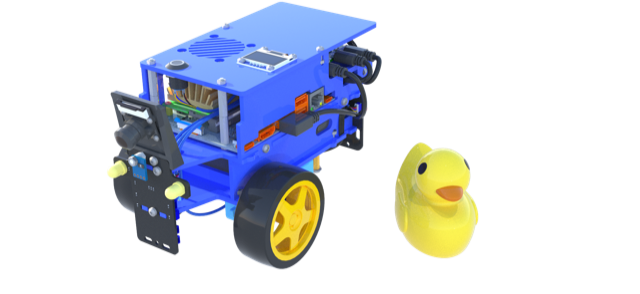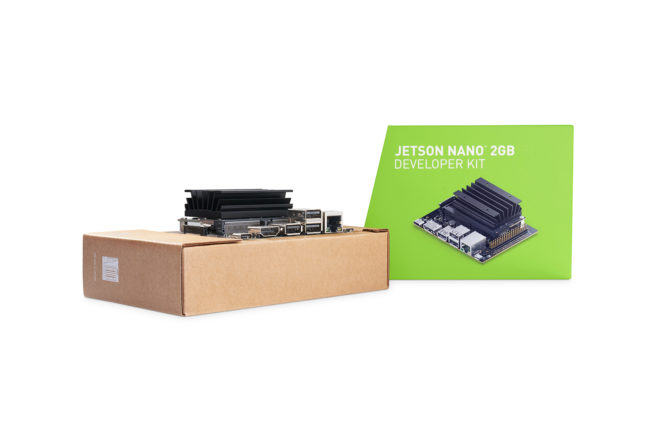For many, the portal into AI is robotics. And one of the best ways to get good at robotics is to get hands on.
Roll up your sleeves, because this week at NVIDIA’s GPU Technology Conference, the Duckietown Foundation announced that it’s offering a free edX course on AI and robotics using the Duckiebot hardware platform powered by the new NVIDIA Jetson Nano 2GB Developer Kit.
The Duckietown project, which started as an MIT class in 2016, has evolved into an open-source platform for robotics and AI education, research and outreach. The project is coordinated by the Duckietown Foundation, whose mission is to reach and teach a wide audience of students about robotics and AI.
It does this through hands-on learning activities in which students put AI and robotics components together to address modern autonomy challenges for self-driving cars. Solutions are implemented in the Duckietown robotics ecosystem, where the interplay among theory, algorithms and deployment on real robots is witnessed firsthand in a model urban environment.

The new devkit is the latest offering in the NVIDIA Jetson AI at the Edge platform, which ranges from entry-level AI devices to advanced platforms for fully autonomous machines. To help people get started with robotics, NVIDIA also announced the availability of free online training and AI-certification programs.
“The Duckietown educational platform provides a hands-on, scaled down, accessible version of real world autonomous systems,” said Emilio Frazzoli, professor of Dynamic Systems and Control at ETH Zurich and advisor for the Duckietown Foundation. “Integrating NVIDIA’s Jetson Nano power in Duckietown enables unprecedented, affordable access to state-of-the-art compute solutions for learning autonomy.”
Another highlight of the course is the Duckietown Autolab remote infrastructure, which enables remote evaluation of robotic agents elaborated by learners with Duckiebot robots at home, providing feedback on assignments. This lets the course provide a realistic development flow with real hardware evaluation.

Enrollment is now open for the free edX course, called “Self-Driving Cars with Duckietown,” which starts in February. To find out more about the technical specifications of the new NVIDIA powered Duckiebot or to pre-order, check out the Duckietown’s Store.
The AI Driving Olympics
For more advanced students, or for people who just want to witness the fun, Duckietown has created the “AI Driving Olympics” (AI-DO) competition. It focuses on autonomous vehicles with the objective of evaluating the state of the art in embodied AI, by benchmarking novel machine learning approaches to autonomy in a set of fun challenges.
AI-DO is made up of a series of increasingly complex tasks — from simple lane-following to fleet management. For each, competitors use various resources, such as simulation, logs, code templates, baseline implementations, and standardized physical autonomous Duckiebots operating in Duckietown, a formally defined urban environment.
Submissions are evaluated in simulation on the cloud, physically in remote Duckietown Autolabs, and running on actual Duckiebots at the live finals competition.
Participants can participate remotely at any stage of the competition. They just need to send their source code packaged as a Docker image. Team members will then be able to use Duckiebot’s “Autolabs,” which are facilities that allow remote experimentation in reproducible settings.
The next AI-DO race will be at NeurIPS, Dec. 6-12.
Duckietown classes and labs are offered at 80+ universities, including ETH Zürich and Université de Montréal. Curriculum materials for undergraduate and graduate courses are available open source. This includes weekly lecture plans, open source software, and a modular, do-it-yourself hardware smart city environment with autonomous driving car kits.
Watch NVIDIA CEO Jensen Huang recap all the autonomous machines news announced at GTC:
